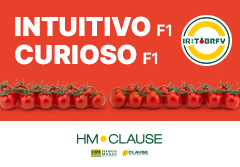By Cirilo Arnandis, Chairman of the Fruit and Vegetables Board of Agrifood Cooperatives of Spain
European cooperatives defend the Community Aid Regime in view of the Reform of the CAP
Last November, the European Commission started up the discussion about the CAP post 2020 with its Communication “The future of food and agriculture”. The document makes a declaration of principles “in pursuit of a common, flexible, fair and sustainable agricultural policy”. A discussion that will be marked by the financial prospects (“post-Brexit” budget), the new order of priorities in the European construction (migration, defence, safety…) and due to other more practical ones, such as the reduction of resources of the DG ACRI. A debate which, incidentally, is being started by a Commission and a Parliament that will not bring it to an end, because if the reform is delayed, it will be closed in the following legislature.
The Communication sets forth some targets, but it allows a first valuation before the Commission launches its legislative proposal. The deepest concern lies in the reduction of the budget due to “Brexit”.
There is also the risk of decommissioning or nationalisation of the CAP and of the weakening of the operation of the single market, if (as the Communication points out), the “lucky ones” with greater Subsidiarity, were the Member States (or the regions?) who chose the type of financing steps, within some “basic community parameters,” each one for their own territory,
The Commission’s statement in favour of maintaining the direct payments has calmed many, but this premise removes the possibility of implanting any other type of instruments, such as, for example, the establishment of a serious crisis management system.
The Communication talks about the reinforcement of the “role and the efficient operation of the Producers’ Organisations” to improve the “negotiating position of the producers on the chain of value,” “reducing their costs and increasing their competitiveness in such a way that the compensation on the market will improve.” The figure of PO, born in the heart of the CMO of Fruit and Vegetables” was distorted when it reached other productions until becoming “representational or instrumental entities” instead of marketing business entities, (the only ones useful for the farmers…).
More coincidences. The Commission talks about a CAP that is more aimed at “stimulating investments” and a “budget centred on results.” For the past 20 years, the community aid regime has been a goal and result-oriented system.
The Commission talks about giving greater relevance to the Member States for applying the CAP. For many years, the “CMOFV” has been supported by “National Strategies” designed by each Member State, which, by the way, have not made the bureaucratic burden any easier. However, when the Commission grants more independence to the Member States, but reserves the right to the “last word,” and legal uncertainty complicates the management process.
If we talk about expenditure, our aid system is co-funded by the producers (which means the best guarantee of effectiveness) and it takes up a minute budget item if compared with its contribution to the final agricultural production.
For all these reasons, if the future legislative proposals of the CAP post 2020 were true to the Commission’s Communication (and I myself also leaving to one side the future of the budget of the CAP), I would be rather optimistic: the community aid for fruit and vegetables, based on the PO must be maintained. I insist this is a “conditional” optimism, considering that the reviewing of the CAP’s budget does not wreak havoc.
In addition to providing “added European value”, it is an aid system that is well-adapted to our cooperatives. In this context, the representative organisations of the cooperatives in the sector and of most of the European OPs, we have laid down a joint position about the future of the “FV aid regime.” Under the title “Maintaining, improving and guaranteeing the community aid regime to the fruit and vegetable sector,” we consider that this tool is the one that best adapts to the sector’s requirements. Therefore, we would ask a specific, business definition of the POFV to be preserved, based on their trading function, as well as maintaining the obligation of these organisations to have the appropriate resources for their targets. We would also ask that this support continues, with the funding of the Operational Programmes of these POFV using goal-oriented aid, proportional to the VPC, contained in the first pillar and co-funded by a sufficient budget.
Amongst the improvement proposals are the following: improving the funding of the OP of the PO that contribute most to the concentration of the offer (for example, those that reach a certain size or that progress in scale or that are the result of integration processes; improving the eligibility of certain actions; making the PGC measures more flexible, and, in particular, improving the free distribution; establishing a minimum level of community recognition; simplifying, cutting out the red tape, giving coherence and legal certainty to the control and auditing systems.
I am optimistic. “Conditionally” optimistic.
























